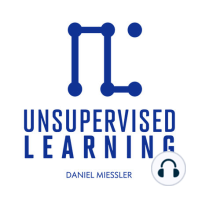4 min listen

My Response to Sam Harris on the Apple Encryption Debate
My Response to Sam Harris on the Apple Encryption Debate
ratings:
Length:
36 minutes
Released:
Feb 28, 2016
Format:
Podcast episode
Description
[ Subscribe to the Podcast: iTunes | Android | RSS ]
[ UPDATE: Much credit to Sam for engaging in the conversation. I’m not sure how people claim he’s closed on this topic when he is clearly open to exploring it. ]
I don't agree with all of it. But this is a very good response to my remarks about encryption. https://t.co/rMl8zgtuWN@danielmiessler— Sam Harris (@SamHarrisOrg) February 28, 2016
—
I’ve been planning on doing a podcast episode on the Apple encryption debate for some time, but I was unsure of the format I should use.
This problem was just solved for me when I listened to Sam Harris—who is someone I respect greatly—miss the mark significantly in a recent podcast.
The thing that compelled me to respond was the fact that I don’t often disagree with Sam. His logic is usually impeccable, and we often end up with nearly identical opinions.
So it was somewhat surreal to hear him be wrong about something. Or at least disagree with me (which, of course, may not be the same thing).
Anyway, being in information security myself I felt like a response was important.
This essay takes the form of a retort to his comments, followed by my own points and then a summary.
Sam’s points
[ The points are summarized, by the way, not necessarily exact quotes. ]
* Apple built the lock, but didn’t build the key, and now they’re telling us that building the key would put us all at risk. Self-serving abdication of responsibility.
* Community in tech swayed by Snowden. Even when the government gets a court order, they think they shouldn’t give access
* Gives cases where text messages could have helped solve a murder, but the texts are unread because the iPhone is unbreakable. Imagine being a family member!
* Could someone build an impregnable room inside their own house?
* What if you could take a drug that could make your DNA unanalyzable? So you could never be linked to any crime. The only people who would benefit would be criminals!
* Apple could maintain the backdoor and it’d be fine, just like banks have your banking information. They’re trading on paranoia.
My responses
[ NOTE: This will come in the form of a podcast, which I may still record. I wrote it largely in the voice of a spoken conversation. ]
First, let’s start with where we agree.
You speak of a “Cult of Privacy”, where people are blindly saying that Snowden did nothing wrong whatsoever, that he didn’t set a dangerous precedent, that any violation of privacy in any case is always bad, etc., etc.
I absolutely agree with you that this is not an intelligent way to understand and discuss current events.
But there’s another cult on the other side, and it’s one that you’re coming dangerous close to membership in. And that’s “The Cult of Safety”. This one works like this: If there is any situation in which some amount of data could be used to help learn where a kidnapped girl is, or where a terrorist’s bomb will detonate, then it’s within the rights of a government to legally seize ...Support the show: https://danielmiessler.com/support/See omnystudio.com/listener for privacy information.
Released:
Feb 28, 2016
Format:
Podcast episode
Titles in the series (100)
Take 1 Security Podcast: Episode 1 by Unsupervised Learning